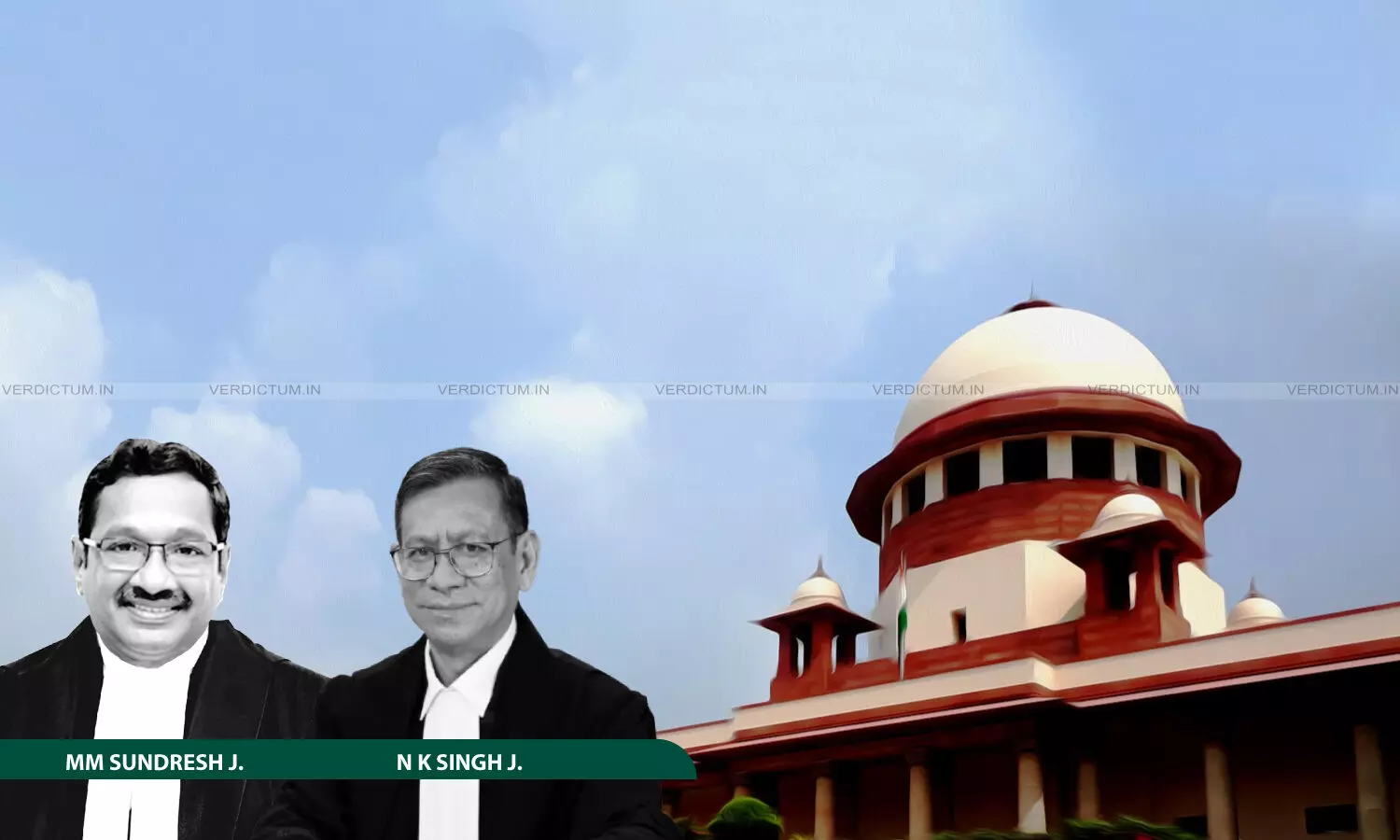
Justice M.M. Sundresh, Justice N. Kotishwar Singh , Supreme Court of India
Non Disclosure Of Income In ITR For 4 Financial Years Not A Substantial Defect: Supreme Court Dismisses Appeal Challenging BRS MLA Kova Laxmi's Election In Telangana Assembly Polls
 |
|The Supreme Court said that disclosure of assets and education qualifications are considered supplementary requirements to strengthen the Electoral process.
Today, the Supreme Court pronounced judgement in an appeal challenging BRS MLA Kova Laxmi's election in Telangana Assembly Polls and held that non-disclosure of Income Tax Return for four financial years is not a substantial defect to nullify her election.
The Bench of Justice M.M. Sundresh and Justice N. Kotiswar Singh observed, "As we have held that the defect of non-disclosure...is not of substantial nature for the same reason Respondent no. 1(Kova Laxmi) cannot be said to be indulged in a corrupt activity within the meaning of Section 123(2) of the Act. Thus, the election of Respondent no. 1 cannot be rendered void..."
At the outset, Justice Singh read the judgment and said, "Aiming to prevent criminals from participating in elections maintain purity in election process is essential for the proper functioning of the Parliament democracy..."
Congress Candidate, Ajmera Shyam and Kova Laxmi contested in the Telangana Assembly elections in 2023 from the Asifabad Assembly Constituency (ST), wherein Laxmi secured 83,036 votes and Ajmera Shyam received 60,238 votes. Consequently, Kova Laxmi was declared elected.
Subsequently, Ajmera Shyam filed an election petition before the Telangana High Court, claiming that Kova Laxmi filed her nomination along with Form-26 affidavit, but the same was incomplete and defective, but the same was rejected.
Later, an appeal was filed by Ajmera Shyam before the Supreme Court and it was held, "However, the Court has made a settle distinction between non-disclosure of criminal antecedents and... assets, educational qualification." The Supreme Court observed that disclosure of assets and education qualifications are considered supplementary requirements to strengthen the Electoral process.
Subsequently, the Supreme Court held, "In the light of the above, disclosure requirement as far as assets and educational qualifications are concerned should be so strict to invalidate an otherwise validly declared election over minor technical non-compliances...and cannot be the basis of nullification."
Therefore, in the light of the facts and circumstances, the Supreme Court held that non-disclosure of income in Income Tax Return for four financial years by Kava Laxmi was not a defect of substantial character.
"Therefore, the nomination could not have been rejected under Section 36(2) of the Representation of People's Act, 1951 as contended by the Appellant", the Court observed.
Resultantly, the Court observed that the penal clause cannot be invoked to invalidate the Laxmi's election on the ground that the Laxmi was improperly accepted. Further, the Court pronounced, "As we have held that the defect of non-disclosure...is not of substantial nature for the same reason Respondent no. 1(Kova Laxmi) cannot be said to be indulged in a corrupt activity within the meaning of Section 123(2) of the Act. Thus, the election of Respondent no. 1 cannot be rendered void..."
Accordingly, the Appeal filed by the Congress Candidate Ajmera Shyam was dismissed by the Supreme Court.
Cause Title: Ajmera Shyam V. Kova Laxmi & Ors. (C.A. No. 13015/2024 XII-A)
Click here to read/download Judgment